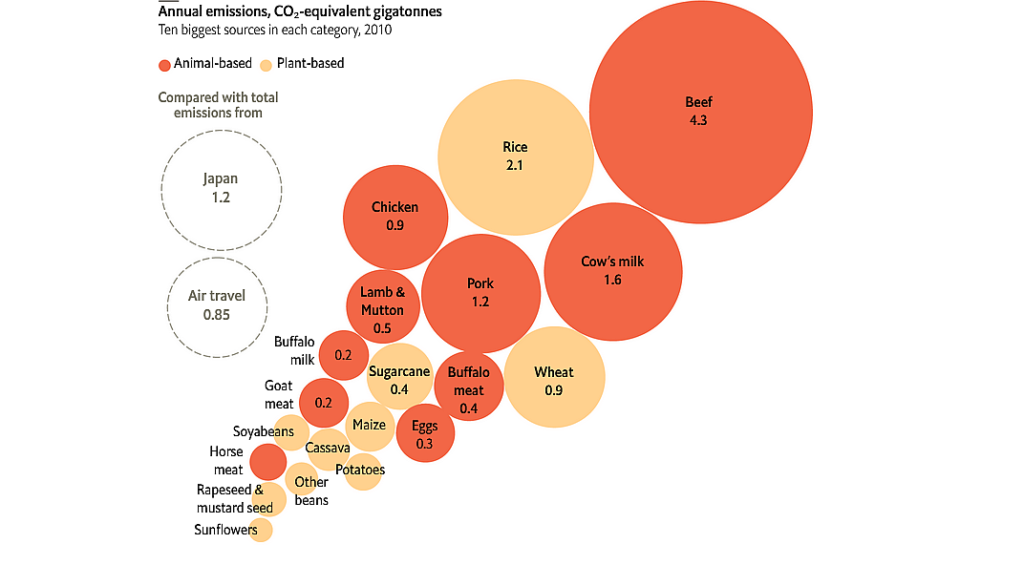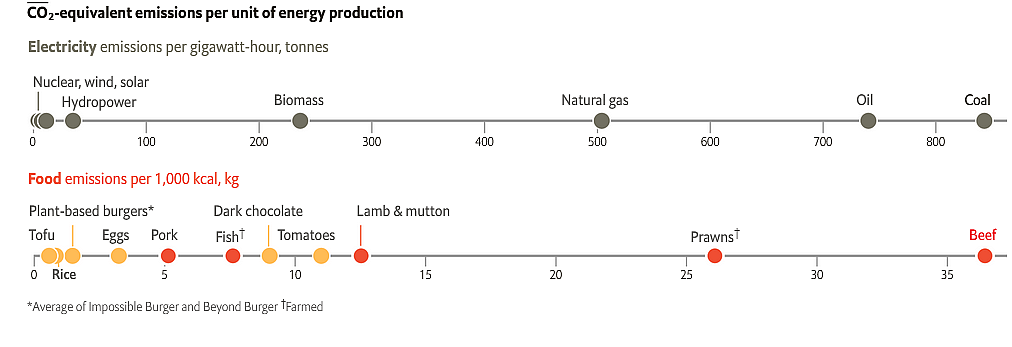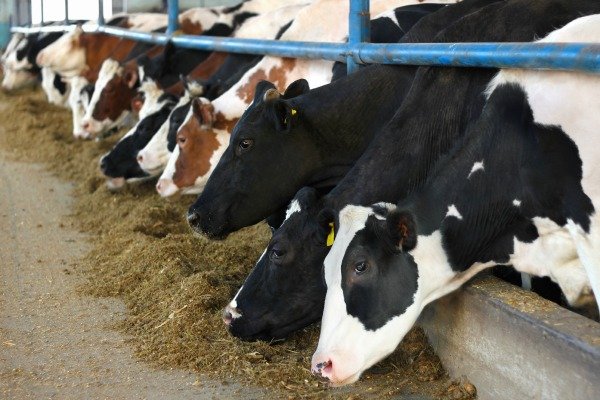Two recent papers published in Nature Food reveal that the contribution of food, particularly beef, to greenhouse-gas emissions (GHG) is greater than previously believed. Opting out of consuming steak could be a highly effective method for reducing one’s carbon footprint.

According to a study by the UN’s Intergovernmental Panel on Climate Change, the global food system was estimated to be responsible for 21-37% of greenhouse gas emissions in 2019. Recently, researchers from the European Commission and the UN’s Food and Agriculture Office released a study that found food to be responsible for 34% of greenhouse gas emissions in 2015.

A recent study conducted by Xiaoming Xu and his team at the University of Illinois at Urbana-Champaign analyzed the environmental impact of various crops and animal products. The study found that animal-based foods were responsible for 57% of greenhouse gas emissions in agriculture, while plant-based foods accounted for 29%. Beef and cow’s milk alone contributed to 34% of these emissions.
Compared to other types of food, beef has a significantly higher carbon footprint due to factors such as methane emissions from cattle and deforestation caused by creating large pastures. This makes beef stand out more in terms of carbon intensity than coal does in the electricity industry, where it only produces 14% more greenhouse gases than oil.

The easiest way to reduce beef production is for individuals to consume alternative meats or adopt a vegetarian diet, although we acknowledge that this is easier said than done.
Reference- Nature Food, The Economist, National Geographic, IPCC Report






